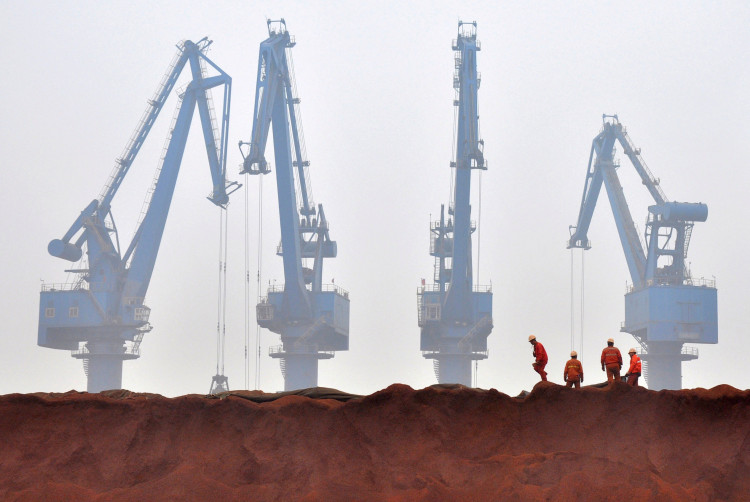The stock market is reacting negatively to China's strict anti-smog regulations. Recently, Dalian iron ore futures dropped by nearly 1 percent as the country continues to impose its anti-pollution measures. Observers have noted that the emergency anti-pollution measures imposed in China's northern region have affected the demand of raw materials used for steelmaking.
On Wednesday, China's Ministry of Ecology and Environment said that it is expecting severe smog that will affect regions in northern China, a region is known for its iron ore mining industry. Most notable of the affected areas are major steelmaking province Hebei and coal mining region of Shanxi. According to forecast, smog will blanket the region from Jan. 10-14.
Following this declaration, a handful of cities issued smog alerts and asked local heavy industries to restrict operation and production. Among those that are of topmost concerns are sinter plants. Conservation agencies asked companies to adhere to these regulations during the forecast pollution period.
Sintering is a process wherein iron ores are melted before being put into a blast furnace. This particular process is known to emit large amounts of pollutants.
Following the anti-smog forecast, the price of iron ore futures in the Dalian Commodity Exchange fell by 0.9 percent per ton. This dropped the price to 508 Yuan or about $74.50.
On the other hand, stocks of imported iron ore at Chinese ports saw a significant rise. As of Jan. 7, data revealed that iron ore imports at Chinese ports rose to 140.6 million tons. This is the highest it has been in the last seven weeks.
In a statement acquired by Reuters, an analyst from Huatai Futures said, "Iron ore prices could be volatile in the near-term due to restrictions on sintering plants."
Aside from iron ore prices, a handful of raw materials used for steelmaking also dropped in prices. In the Dalian Commodity Exchange, the price of coking coal dropped by 0.4 percent to 1,186 Yuan per ton and coke futures dropped by 1.5 percent to 1,933 Yuan.
On the Shanghai Futures Exchange, steel rebar prices dropped by 0.2 percent to 3,517 Yuan per ton. Some observers said that investors continue to remain cautious following the three-day trade talks between China and the United States.
Regarding the trade talks, China's commerce ministry described the talks to be extensive and detailed. China and the United States agreed to a 90-day truce in order to work a solution on solving the ever-expanding trade war between the two superpowers.





